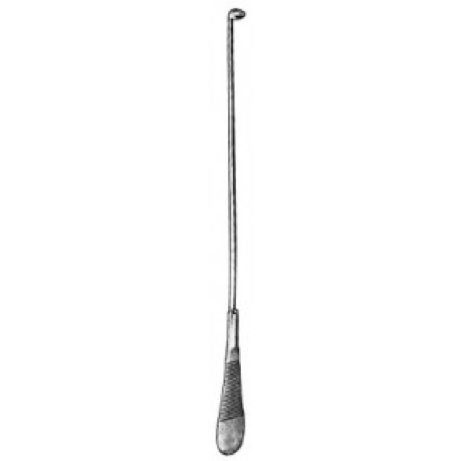
Bangladesh’s Clinical Contraception Services Delivery program trained its first batch of surgeons this month to use tubal hook and uterine elevator during tubal ligation procedures. This method of tubal ligation is widely considered to be safer, less painful, and more cost-effective than traditional techniques. The Bangladesh National Technical Committee approved use of the tubal hook and uterine elevator as part of the National Family Planning Programme in August 2019 and provided a training plan with resources to build the capacity of health providers. Once the method is implemented across the country, it is estimated that around 1.4 million women will benefit [1].
Tubal ligation is well-recognized as a key option for women who have completed their families and choose not to have more children. Tubal hooks can gently bring the fallopian tube to the incision, and a uterine elevator helps the surgeon manipulate the uterus to easily access the tubes and reduce trauma to the surrounding tissues.
In Bangladesh, the number of clients choosing permanent contraceptive methods is gradually decreasing. The 2014 Demographic and Health Survey shows tubal ligation declined from 5% in 2010 to 4.6% in 2014 [2][3]. In line with its Family Planning 2020 (FP2020) commitment, Bangladesh has shifted to focus on expanding access to long-acting permanent methods in its Seventh Five Year Plan to accelerate economic growth and empower citizens [4].
In 2017, Advance Family Planning (AFP) partner Marie Stopes Bangladesh (MSB) began working to replicate Marie Stopes International’s work in other countries to provide quality tubal ligation services. They organized exposure visits with government officials from Nepal (March 2017) and Kenya (September 2017), who shared their experiences of adopting similar programs.
After evidence-based exposure visits and conversations with policymakers, MSB and the Advocacy Advisory Group—the national family planning advocacy working group—teamed up with Directorate General of Family Planning (DGFP) to advocate for a pilot project to survey the acceptability of the tubal hook method among women and health providers in Bangladesh.
After a series of workshops and meetings with the National Technical Committee and the Bangladesh Medical Research Council, they approved the pilot study in March 2018. The study was a cross-sectional survey covering seven public family planning facilities over three months: the Mohammadpur Fertility Services and Training Centre (Dhaka) and six mother and child welfare centers (Rajshahi, Gaibandha, Faridpur, Chuadanga, Norshingdi, Comilla). The sample size was 400 tubal ligation clients (200 control and 200 study). Client selection criteria included married women aged 24 years or above with at least two living children and consent to perform the procedure.
After receiving the ethical approval from Bangladesh Medical Research Council, an expert from Marie Stopes International trained the selected service providers and assessed their competency to use the tubal hook. The preparatory phase also consisted of selecting data collectors and training them on the questionnaire and performing several dummy trials. The pilot study officially began on September 1, 2018. Initially, the duration of the study was three months, but concluded in March 2019 due to the national election and availability of the selected service providers.
Analysis of the data found that out of 200 clients, 73% felt positively about the tubal hook and 91% of service providers preferred it over the traditional method [5]. The results also showed smaller incisions, effective use of vocal local combined with local anesthesia (minimum pre-medication, tolerable pain), and higher levels of satisfaction among clients.
The MSB team continued dialogues with National Technical Committee members to educate them on the benefits of tubal ligation. The team shared the draft findings with DGFP officials for feedback and arranged an experience-sharing meeting with National Technical Committee members.
On August 22, 2019, the National Technical Committee approved the inclusion and use of tubal hook into the National Family Planning Programme. The private family planning curriculum will be revised based on a new guideline, which is currently in process.
The MSB team will continue dialogues with the DGFP to pursue the procurement for and implementation of the roll-out plan. MSB will also work with the DGFP to finalize the training plan, which involves five batches of trainings between February and June 2020, with 28 participants per batch.
References
[1] FP2020. December 23, 2015. “Costed Implementation Plan for the National Family Planning Programme, Bangladesh, 2016-2020.” https://www.familyplanning2020.org/resources/costed-implementation-plan-national-family-planning-programme-bangladesh-2016-2020.
[2] National Institute of Population Research and Training (NIPORT), Mitra and Associates, and ICF International. 2013. “Bangladesh Demographic and Health Survey 2011.” Dhaka, Bangladesh and Calverton, Maryland, USA: NIPORT, Mitra and Associates, and ICF International.
[3] National Institute of Population Research and Training (NIPORT), Mitra and Associates, and ICF International. 2016. “Bangladesh Demographic and Health Survey 2014.” Dhaka, Bangladesh, and Rockville, Maryland, USA: NIPORT, Mitra and Associates, and ICF International.
[4] General Economics Division (GED), Planning Commission, and Government of the People’s Republic of Bangladesh. 2015. “Seventh Five Year Plan FY2016-FY2020.” Dhaka, Bangladesh.
[5] Directorate General of Family Planning and Marie Stopes Bangladesh. 2019. “Introducing Tubal Hook and Uterine Elevator for Tubal Ligation in Bangladesh.” PowerPoint Presentation.

